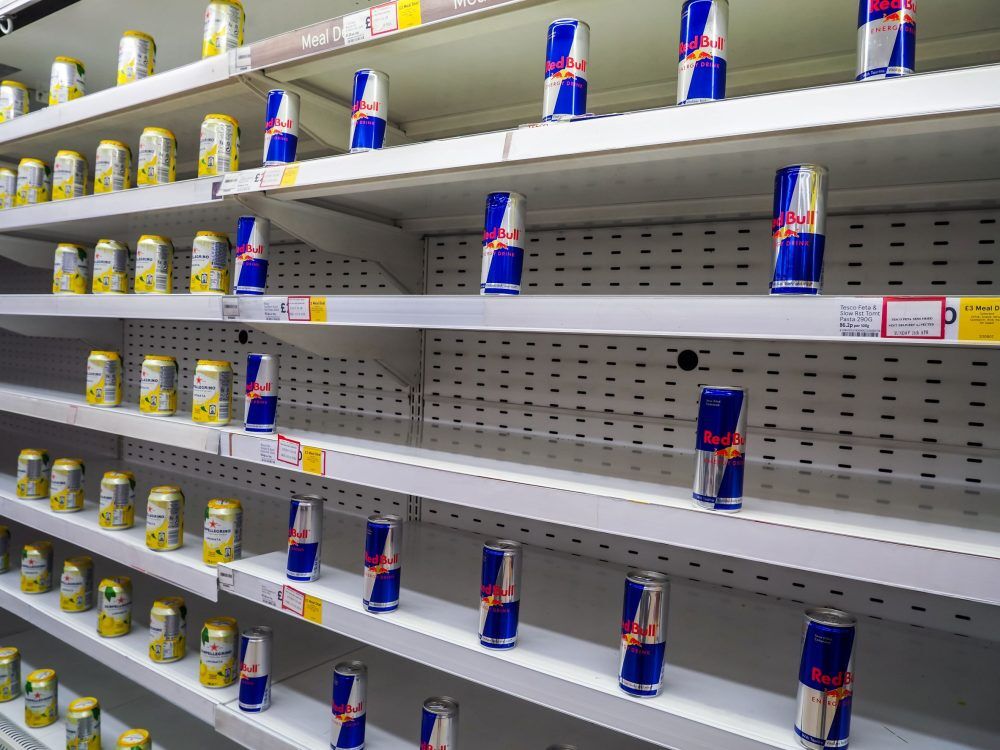
Supply Chain disruption is starting to feel like the wrong term to be using. We have been faced with numerous shocks to the supply chain over the last few years and just when it feels like we are getting to the light at the end of the tunnel, we are hit with an even bigger disruption. The word disruption has a temporary connotation which feels less and less applicable.
If we go back just a few years, in the last few months of 2019, an awful lot of attention was being placed on the upcoming IMO2020 regulations which were being brought in to limit the sulphur content of bunker fuels. This was at one point heralded as the biggest change in shipping since we moved from sail to coal. This was expected at the time to be a massive disruptor in the supply chain resulting in a range of consequences from increased price of fuel to quality issues to worries about shortages of the right type of fuel.
When COVID struck in early 2020, the IMO regulations were almost a sweet memory. International travel, upon which the Global Supply Chain relies was suddenly impossible. The ships that were so important for moving goods around the world were not being allowed into port and the crews on board were bearing the brunt of the problem. We saw in some extreme cases, crew change being impossible for over a year. It is worth noting that throughout the entire COVID crisis the Global Supply Chain remained remarkably resilient and apart from some initial shortage of toilet papers and later in COVID test kits, we did not really experience any significant shortages on our shelves or when filling up at the pump.
Then in March 2021, the unthinkable happened. The Suez Canal, one of the lifelines of the Global Economy was blocked by the MV Ever Given. Ships carrying goods to markets in Europe were suddenly faced with the choice of waiting an unknown amount of time for the canal to be opened or sailing the much longer and more expensive voyage around the Cape of Good Hope. While the canal was unblocked and the MV Ever Given was moved after about 6 days, a queue of almost 400 vessels had already formed and billions of dollars in goods had been delayed.
On top of all these events, we have seen an incredible rise in the cost of shipping goods by container leading to dry bulk vessels converting to carry containers and companies such as Ikea and Walmart moving to charter bulk carriers to move their goods around the world. The increase in the cost of shipping goods by container is due to a large number of factors and it is impossible to pin it down to one single reason. Unfortunately, this also makes it exceedingly difficult to specific take steps to bring rates down or even lay some blame.
Finally (for the moment), we are facing the Russian invasion of Ukraine which is creating an enormous humanitarian crisis and also bringing into focus just how much of Europe’s energy requirements depend on Russia and how much of the world’s grain is supplied from the Black Sea. As though the disruption caused by war was not enough, there has been a huge impact on ship movements, access to financing and available insurance cover. Our industry naturally focuses on the effects on the Supply Chain but this is in no way meant to dimmish the humanitarian crisis that is unfolding.
Can all these be called disruptions, or should this be seen as the new normal of the Global Supply Chain? Should the Supply Chain be reinforced to be able to withstand such disruptions if they are going to be as regular as we have recently seen? Would we be able to predict these events and what would we do to protect against them?
We should remember that throughout all this, we have always had food in our shops, petrol in our petrol stations and perfectly functioning heating. The main impact has been limited to price.
Looking forward, we are presently facing possibly the two biggest challenges to the Global Supply Chain that we have ever known, firstly the drive towards carbon neutrality initially focused on transportation but more and more on the goods being transported. Secondly, we are seeing more and more pressure on the importance of sustainability in the movement of goods around the world and the goods that we consume. If we want to continue enjoying this planet and living the lives that we have become accustomed to then we will need to find ways to transport goods in a sustainable manner and on a carbon net zero basis. These challenges will keep us all busy till well after we retire but will also present a wealth of opportunities and will undoubtably lead to us discovering ways of doing things which are far better in every way than anything we know today.
This opinion piece was contributed to BBN by Richard Watts, Director of HR Maritime, Maritime & Trade Specialists in Geneva.

